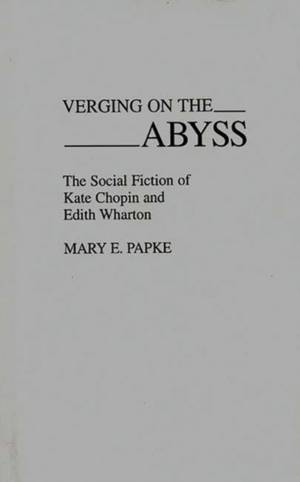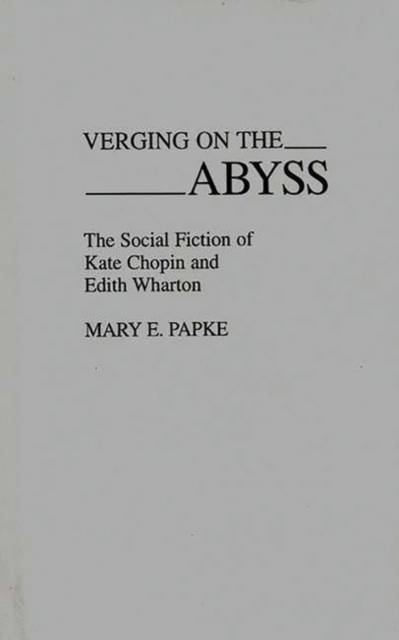
Bedankt voor het vertrouwen het afgelopen jaar! Om jou te bedanken bieden we GRATIS verzending (in België) aan op alles gedurende de hele maand januari.
- Afhalen na 1 uur in een winkel met voorraad
- Gratis thuislevering in België
- Ruim aanbod met 7 miljoen producten
Bedankt voor het vertrouwen het afgelopen jaar! Om jou te bedanken bieden we GRATIS verzending (in België) aan op alles gedurende de hele maand januari.
- Afhalen na 1 uur in een winkel met voorraad
- Gratis thuislevering in België
- Ruim aanbod met 7 miljoen producten
Zoeken
€ 161,45
+ 322 punten
Omschrijving
While neither Kate Chopin nor Edith Wharton can be called feminist writers, each did produce female moral art, writings that focus relentlessly on the dialectics of social relations and the position of women therein. Mary Papke analyzes their disintegrative visions through detailed readings of virtually all of their novels and several of their shorter works. Unlike comparable writers of their time, theirs was a nonpolemical but nonetheless political art in which disruption of the rules of masculine/feminine discourse and the hegemonic world view are deeply but obviously embedded within character, plot, and theme.
Papke begins with a brief examination of the ideology of true womanhood, which, she argues, permeates Chopin's and Wharton's fiction and world views. The remainder of her work offers an ideological reading of their social fiction in which their characters search for states of liminality, where they might achieve, however momentarily, autonomy. Repeatedly, Papke argues, these states of liminality are literally encoded into images of characters positioned on the edge of an abyss that then becomes a repository of multiple meanings. The author presents Chopin's and Wharton's female discourse as radical art because it dares to defy that which is both alienating and destructive. Papke's provocative analysis will be of interest not only to Wharton and Chopin scholars, but also to those working in the fields of feminist and women's studies. It will also interest scholars and students of American studies, particularly those working on late nineteenth and early twentieth century literature.Specificaties
Betrokkenen
- Auteur(s):
- Uitgeverij:
Inhoud
- Aantal bladzijden:
- 208
- Taal:
- Engels
- Reeks:
- Reeksnummer:
- nr. 119
Eigenschappen
- Productcode (EAN):
- 9780313268779
- Verschijningsdatum:
- 21/09/1990
- Uitvoering:
- Hardcover
- Formaat:
- Genaaid
- Afmetingen:
- 143 mm x 216 mm
- Gewicht:
- 349 g

Alleen bij Standaard Boekhandel
+ 322 punten op je klantenkaart van Standaard Boekhandel
Beoordelingen
We publiceren alleen reviews die voldoen aan de voorwaarden voor reviews. Bekijk onze voorwaarden voor reviews.












